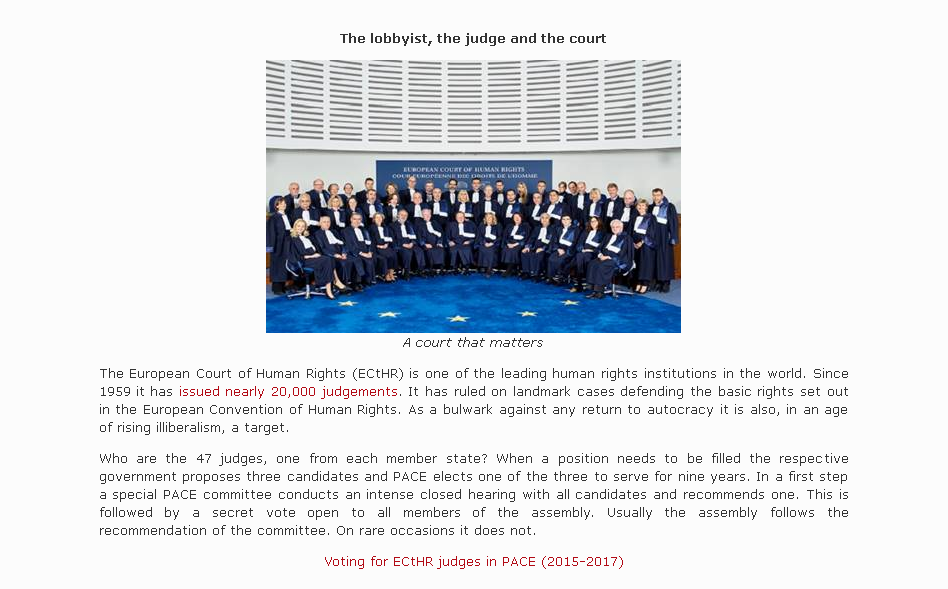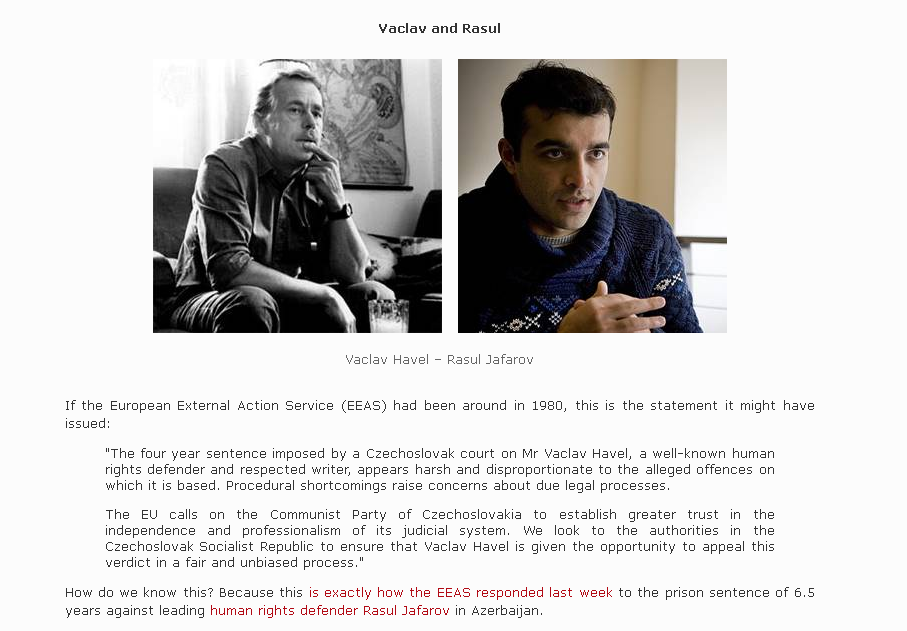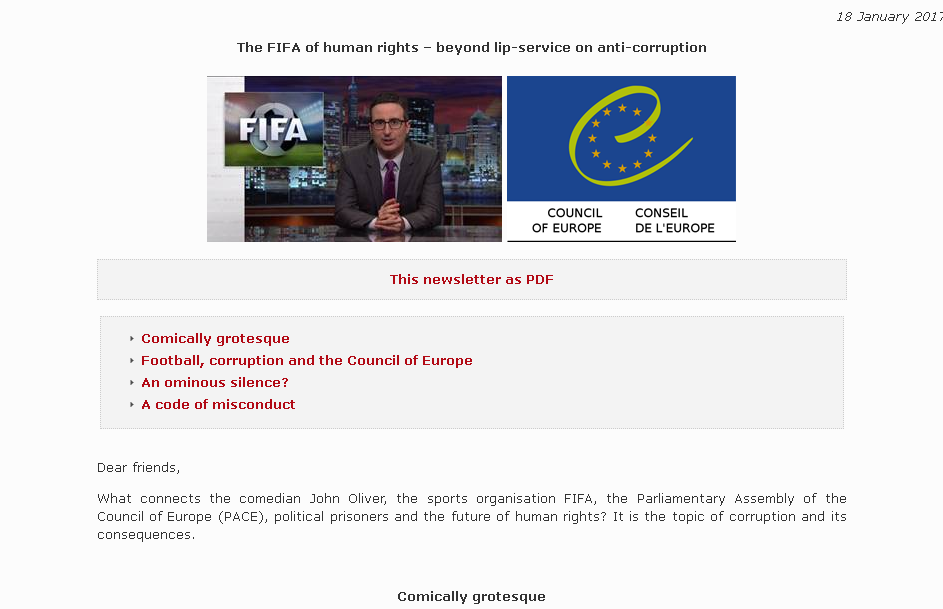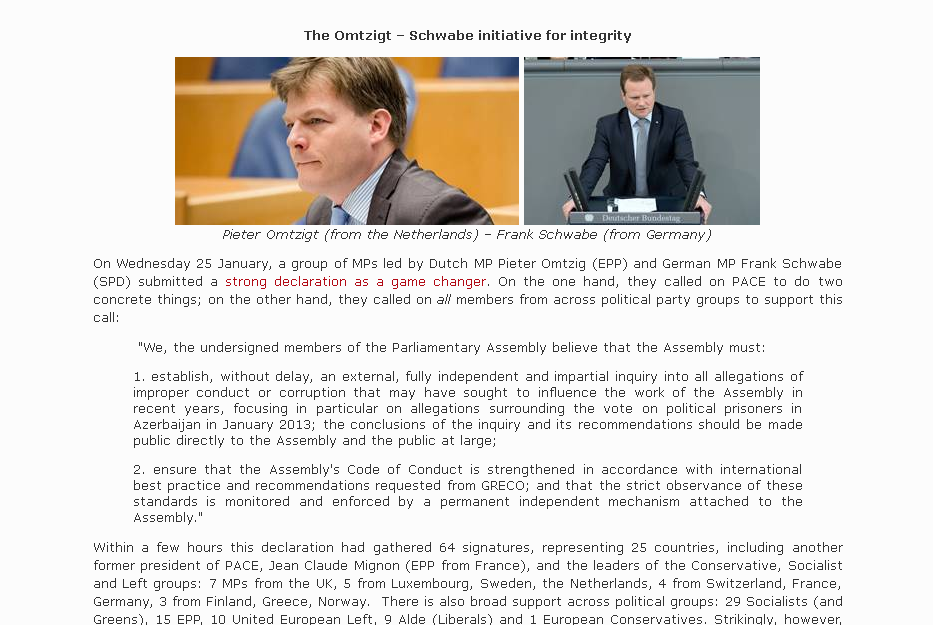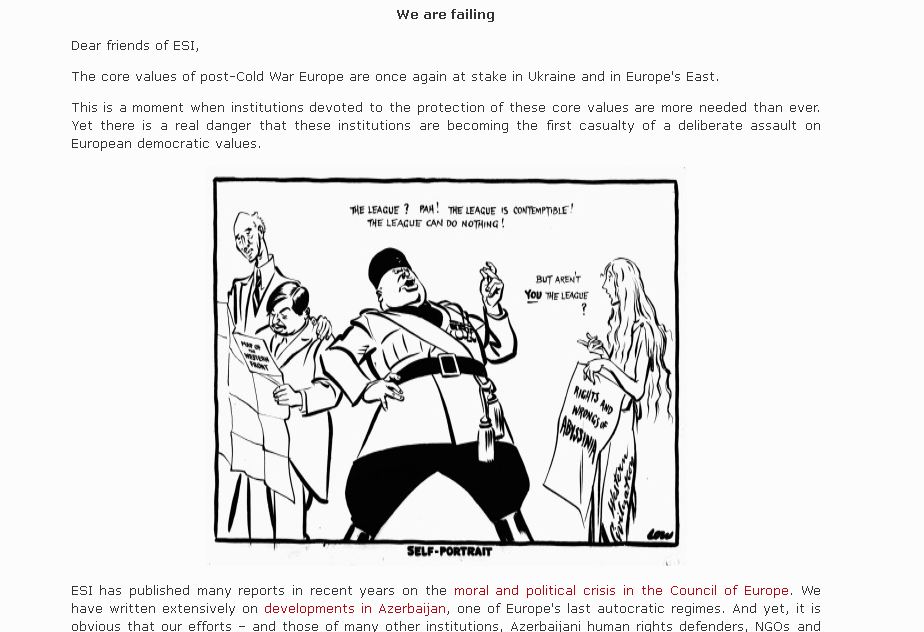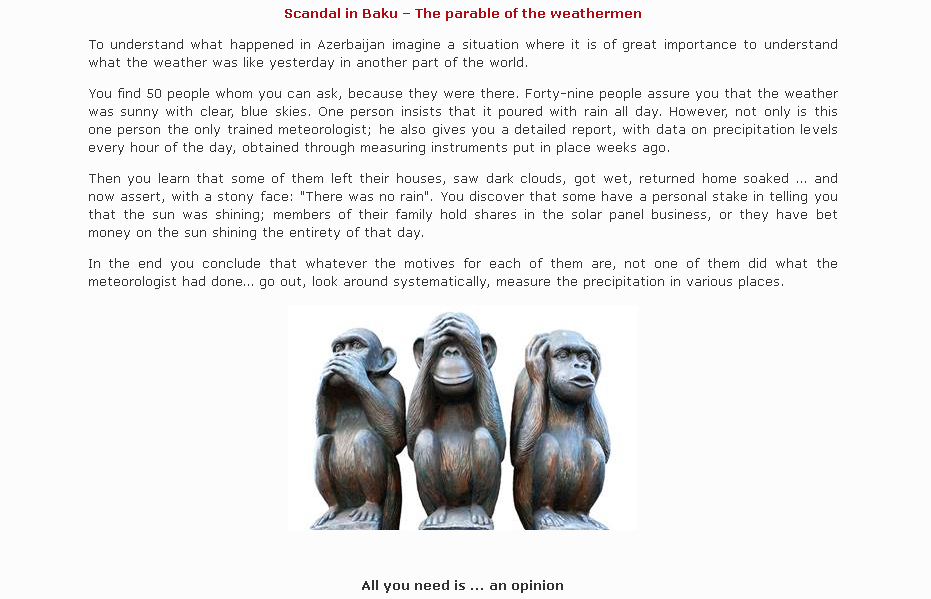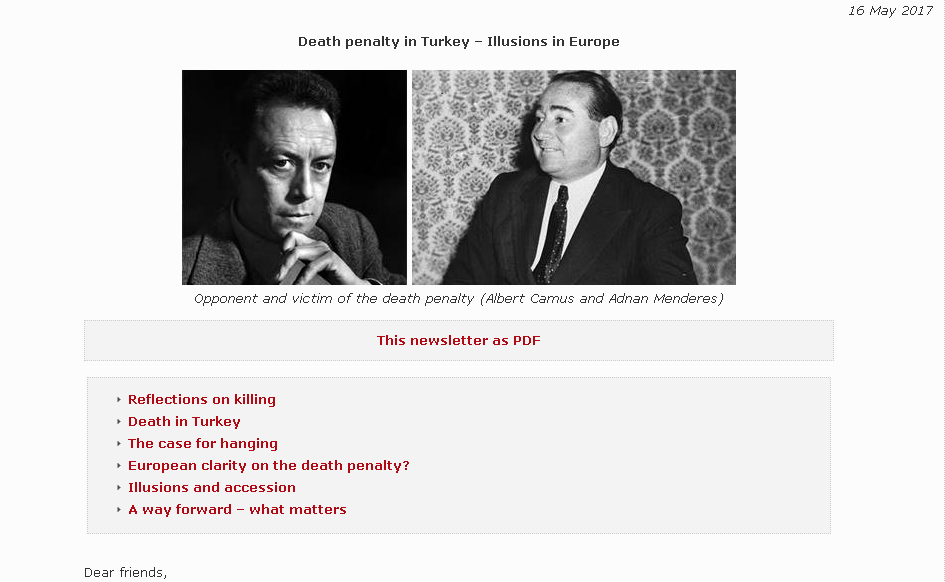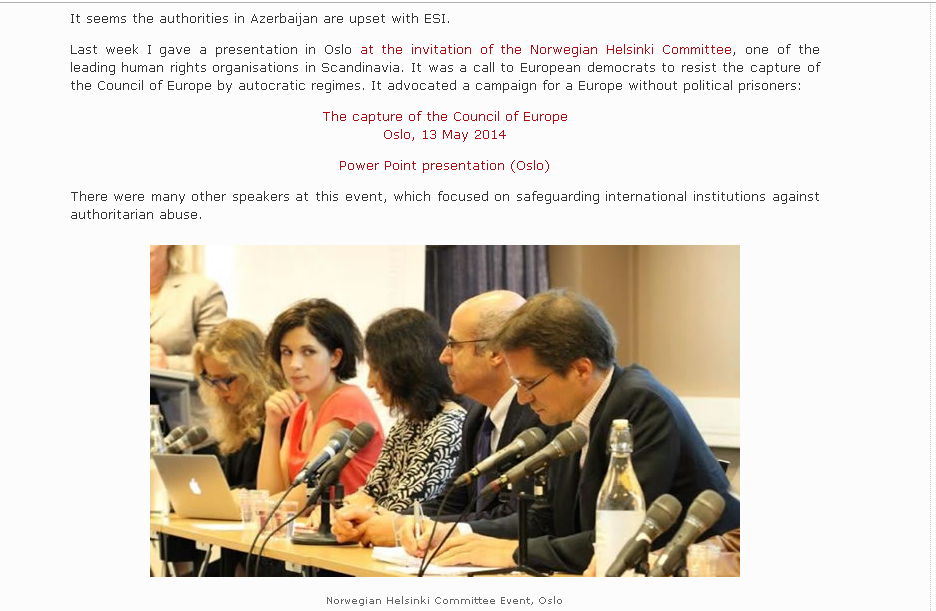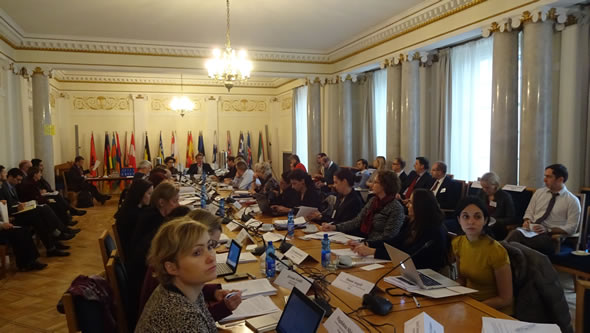8/2021
6 sierpnia 2021 r.
Rządy prawa wymagają, aby „nawet Ci, którzy stoją na straży prawa, prawa tego przestrzegali (…) Jeśli znęcasz się nad pingwinem w londyńskim zoo, nawet jeśli jesteś arcybiskupem Londynu, nie ominie cię kara”
Tom Bingham, Rządy prawa
Drodzy przyjaciele,
15 lipca Trybunał Sprawiedliwości Unii Europejskiej (TSUE) w Luksemburgu wydał historyczny wyrok. Odniósł się on do „strukturalnego załamania” polskiego sądownictwa, które
„nie pozwala na zachowanie widocznych oznak niezawisłości i bezstronności sądownictwa oraz na utrzymanie zaufania, jakie sądy powinny budzić w społeczeństwie demokratycznym, ani też na wykluczenie w przekonaniu jednostek wszelkiej uzasadnionej wątpliwości co do niepodatności na czynniki zewnętrzne”.
TSUE potwierdził to, co wielu, w tym ESI, opisywało w licznych szczegółowych raportach: Sytuacja w Polsce stała się dziś swego rodzaju testem, czy możliwe jest stworzenie systemu sprawiedliwości w państwie członkowskim UE bez niezawisłych sądów, gdzie sędziowie mogą być nagradzani i karani przez rząd za treść orzeczeń sądowych.
W takiej sytuacji prawo do rzetelnego procesu sądowego nie może być już zagwarantowane. Zanika także wtedy zaufanie konieczne, aby sądy w innych państwach członkowskich UE akceptowały wyroki polskich sądów. Gdy, jak ma to miejsce w Polsce, sędziowie krajowi karani są za zwracanie się do TSUE o wskazówki dotyczące stosowania prawa UE, niszczony jest europejski system prawny. W całej UE sądy krajowe szanują i wykonują wyroki sądów innych państw członkowskich, niezależnie od tego, czy dotyczą one sporów handlowych, europejskiego nakazu aresztowania czy opieki nad dzieckiem. To zaufanie między sądami umożliwia „swobodny przepływ orzeczeń sądowych”. Bez takiego zaufania nie byłoby możliwe ani utworzenie jednolitego rynku, ani zniesienie granic wewnętrznych. Koen Lenaerts, 66-letni belgijski prezes TSUE, na początku 2020 r. ujął to dosadnie: „bez niezależności sądów środki ochrony prawnej wywodzące się z prawa UE stają się papierowym tygrysem”. Dialog między niezależnymi sądami krajowymi a TSUE jest, zdaniem Lenaertsa, „filarem unijnego systemu ochrony sądowej”. A bez takich filarów budynki zwyczajnie się walą.
Do niedawna, pisze Lenaert, zakładano, że po przystąpieniu do UE państwa „pozostaną zaangażowane w obronę liberalnej demokracji, praw podstawowych i rządów prawa, a nie ludzi. Ostatnie wydarzenia pokazują, że założenie to nie może być po prostu uznane za pewnik”.
Walka o praworządność
Podobnego kryzysu nie było też nigdzie indziej w UE, w tym na Węgrzech, z którymi Polska jest często „leniwie” porównywana. Ponadto, żaden minister sprawiedliwości w UE nigdy nie skupił w swoich rękach tyle władzy, co polski Zbigniew Ziobro, architekt i największy beneficjent rozkładu rządów prawa w swoim kraju.
Po wyroku TSUE Ziobro błyskawicznie zadeklarował, że woli z nim walczyć i ignorować europejskie traktaty, niż zrezygnować z posiadenej przez siebie kontroli. Jak to ujął 21 lipca, ostatnie orzeczenia TSUE „nie są wiążące dla polskich władz, które działają w oparciu o polską konstytucję. Poddanie się tym orzeczeniom byłoby rażąco niezgodne z prawem”. Naiwnością jest oczekiwać, że polski rząd z Ziobro jako ministrem będzie realizował wyroki.
Równie nierozsądne jest przekonanie, że TSUE zaakceptuje kilka kosmetycznych poprawek lub „jakieś porozumienie”, jak ostatnio sugerował polski premier. Kosmetyczne kroki i pozorne kompromisy nie przywrócą zaufania do niezależności polskich sądów i nie rozwiążą głębokich problemów, na które zwrócono uwagę w tym wyroku.
Sąd najwyższy Unii Europejskiej od lat przygotowywał się do tego starcia. Rozwinął swoją „prawną amunicję” w pierwszych wyrokach dotyczących niezależności sędziowskiej wydawanych od lutego 2018 r. Jak opisali dwaj czołowi eksperci, TSUE zbudował „cegła po cegle, odnowiony zestaw zasad i standardów, aby pomóc instytucjom UE i sądom krajowym skuteczniej bronić praworządności”. Wyrok TSUE z 15 lipca jasno określa wymagania. Zawarto w nim cztery kluczowe punkty:
Punkt 1: Praworządność jest podstawową wartością, wyrażoną w art. 19 Traktatu o Unii Europejskiej.
„Państwo członkowskie nie może zatem zmienić swojego ustawodawstwa w sposób prowadzący do osłabienia ochrony wartości państwa prawnego, której konkretny wyraz daje w szczególności art. 19 Traktatu o Unii Europejskiej”.
Punkt 2: Niezależne sądy mają fundamentalne znaczenie dla praworządności.
”Wymóg niezawisłości sędziowskiej, stanowiącej integralny element sądzenia, wchodzi w zakres istoty prawa do skutecznej ochrony sądowej oraz prawa podstawowego do rzetelnego procesu sądowego, które to prawo ma fundamentalne znaczenie jako gwarancja ochrony wszystkich praw, jakie podmioty prawa wywodzą z prawa Unii”.
Punkt 3: Przepisy regulujące działalność sądów muszą rozwiewać wszelkie uzasadnione wątpliwości co do ich niezawisłości:
„gwarancje niezawisłości i bezstronności oznaczają, że muszą istnieć zasady, w szczególności co do składu organu, powoływania jego członków, okresu trwania ich kadencji oraz powodów ich wyłączania lub odwołania, pozwalające wykluczyć, w przekonaniu jednostek, wszelką uzasadnioną wątpliwość co do niepodatności tego organu na czynniki zewnętrzne oraz jego neutralności względem ścierających się przed nimi interesów”.
Punkt 4: Systemy dyscyplinarne NIE mogą być wykorzystywane do kontrolowania treści orzeczeń.
„Jeżeli chodzi dokładniej o przepisy regulujące system odpowiedzialności dyscyplinarnej sędziów…system ten będzie przewidywał niezbędne gwarancje w celu uniknięcia ryzyka wykorzystywania takiego systemu jako narzędzia politycznej kontroli treści orzeczeń sądowych”.
TSUE sformułował również pięć konkretnych wymogów:
Wymóg 1: zagwarantować niezależność nowej izby dyscyplinarnej
Wymóg 2: zaprzestać nadużywania procedur dyscyplinarnych do kontrolowania treści orzeczeń sądowych
Wymóg 3: stworzyć solidny i przewidywalny system dyscyplinarny
Wymóg 4: zaprzestać nadużywania tego systemu do nękania sędziów nieprzychylnych Ministerstwu Sprawiedliwości
Wymóg 5: zaprzestać nacisków na sędziów, aby nie kierowali pytań do TSUE (w celu uzyskania „orzeczeń wstępnych”)
Dlaczego nie będzie kompromisu
Determinacja polskiego rządu, by wszelkimi dostępnymi środkami podporządkować sobie sądownictwo, nie ulega już wątpliwości. A jednak niektórzy obserwatorzy wciąż nie potrafią zrozumieć strategii polskiego rządu, mimo że stosuje ją już od dłuższego czasu.
Mówiący biegle po angielsku były bankier Mateusz Morawiecki, który powołany został na urząd w grudniu 2017 roku, jest mistrzem w dyplomatycznej grze polegającej na udawaniu negocjacji bez czynienia ustępstw w jakiejkolwiek kwestii merytorycznej. W styczniu 2018 roku Morawiecki spotkał się z ówczesnym przewodniczącym Komisji Europejskiej Jean Claude’em Junckerem. Juncker zadeklarował, że cieszy się na „postępy, które mają nadejść do końca lutego”. 14 lutego 2018 roku Juncker powtórzył: „Myślę, że jest duża szansa, że polskie stanowisko zbliży się do naszego”.
Nie było żadnego postępu. Nie rozwiązano żadnych problemów. Nowy system dyscyplinarny służący kontrolowaniu sędziów i podważaniu podziału władzy konstruowany był w oszałamiającym tempie.
22 marca 2018 r. polski premier stwierdził dosadnie: „Istota, najważniejsze elementy reformy pozostają nietknięte. Jednocześnie przyglądamy się temu, co pozwoliłoby drugiej stronie powiedzieć: O, można osiągnąć kompromis z Polską”. 3 kwietnia 2018 roku Juncker ogłosił, że na obietnice ustępstw ze strony polskiego rządu patrzy „z dużą dozą sympatii”. Polski sekretarz stanu do spraw UE powiedział 3 kwietnia 2018 r. niemieckiemu radiu: „Czynimy ustępstwa dotyczące kwestii, które nie odgrywają żadnej centralnej roli w systemie sądownictwa”.
Na początku maja 2018 roku Financial Times i inne międzynarodowe media napisały, że „Polska idzie z UE na kolejne ustępstwa w sprawie reform sądowych”. Powoływały się na „ustępstwa” przedstawione przez polski rząd 22 marca. Żadnych ustępstw nie było. Przyznał to wówczas minister spraw zagranicznych Jacek Czaputowicz, tłumacząc 4 maja 2018 r.: „Chcemy pokazać pewną otwartość na żądania Komisji, żeby zamknąć tę sprawę i zająć się innymi ważnymi sprawami europejskimi, jak budżet”. A w przemówieniu wygłoszonym 11 listopada 2019 r. prezydent Andrzej Duda zaatakował (wówczas jeszcze) krytycznych sędziów Sądu Najwyższego, po czym oświadczył: „Trzeba spokojnie zaczekać, aż odejdą”.
Dokładnie tak się stało. W efekcie, gdy w zeszłym miesiącu przyszło TSUE orzeczenie, związane z:
– Krajową Radą Sądownictwa, odpowiedzialną za nominowanie sędziów, składającą się z 25 osób, z których zdecydowana większość była członkami partii rządzącej lub została przez nią mianowana; oraz
– system dyscyplinarny, w którym Minister Sprawiedliwości bezpośrednio lub pośrednio mianuje każdą osobę zaangażowaną w dochodzenie, ściganie i orzekanie w sprawach dyscyplinarnych przeciwko sędziom.
Istnieje rozwiązanie — sankcja w wysokości 5 mld euro
Negocjacje nie przyniosą rezultatów, nie są też konieczne. UE nie jest bezsilna: same traktaty oferują rozwiązanie.
20 lipca wiceprzewodnicząca Komisji Europejskiej Vera Jourova, gotowa użyć wszelkich środków, aby wyrok TSUE został wykonany, postawiła ultimatum: „wystąpimy o sankcje finansowe, jeśli Polska nie naprawi sytuacji do 16 sierpnia. Prawa obywateli i przedsiębiorstw w UE muszą być chronione w taki sam sposób we wszystkich państwach członkowskich. W tej sprawie nie może być kompromisu”.
Możliwość nakładania sankcji finansowych w przypadku niewykonania wyroków TSUE istnieje od 1993 roku. TSUE nałożył takie sankcje 37 razy.
Traktaty europejskie dają Komisji prawo do zaproponowania dowolnych sankcji finansowych. Stanowią one także, że TSUE ma ostatnie słowo co do wysokości grzywny, niezależnie od tego, jaką kwotę uzna za stosowną. Wysokość tych sankcji, ustalanych na podstawie wzoru opracowanego przez Komisję w 2005 r. była zazwyczaj skromna. Wzór ten nie jest wiążący, a traktat UE nie określa górnej granicy możliwych grzywien. Zgodnie z wytycznymi Komisji należy dążyć do tego, aby „sama kara stanowiła czynnik odstraszający od dalszego naruszania przepisów”. Przewidziana jest również możliwość nakładania wyjątkowo wysokich grzywien „w uzasadnionych przypadkach”.
Nigdy wcześniej nie było sprawy o naruszenie traktatów o podobnym znaczeniu dla systemu prawnego UE i dla przetrwania unijnej praworządności. Uzasadnia to nałożenie sankcji niespotykanej w historii UE. Komisja Europejska i TSUE mogłyby to uczynić w oparciu o Zasadę z Artykułu 19 TEU:
„Za każdym razem, gdy TSUE stwierdzi, że gwarantowane przez artykuł 19 Traktatu UE prawo do „skutecznej ochrony prawnej” w sądach krajowych jest naruszone, a państwo członkowskie odmawia przy tym usunięcia uchybienia, nakładana jest sankcja finansowa w wysokości co najmniej 1 procent PKB tego kraju rocznie”.
W przypadku Polski, której PKB wynosi ok. 520 mld euro, oznaczałoby to karę w wysokości ok. 5,2 mld euro rocznie. Komisja powinna zatem zaproponować grzywnę, która następnie nałożona zostanie przez TSUE. Kara finansowa w wysokości 880 mln euro powinna być wznawiana co dwa miesiące do czasu wykonania przez rząd polski orzeczenia z 15 lipca. Jeśli polski rząd zobowiąże się do pełnego wdrożenia tego wyroku do 16 sierpnia i porzuci dążenie do kontrolowania swoich sędziów, sankcji finansowych nie będzie.
Punkt zwrotny dla Europy
Egzekwowanie zasady Artykułu 19 wzmocniłoby system prawny UE dla następnych pokoleń. Żadne państwo członkowskie UE nie powinno już nigdy ulec pokusie zniszczenia niezależności swoich sądów. Żadne państwo nie powinno też nigdy odważyć na zignorowanie wyroków TSUE w tak fundamentalnej sprawie. Byłby to pozytywny punkt zwrotny w historii Unii. Jak to ujął Koen Lenaerts na początku 2020 roku:
„Dziś Europejczycy stoją przed definiującym momentem w historii integracji […] zasada niezawisłości sądów musi zostać zachowana, aby UE pozostała „Unią demokracji”, „Unią praw” i „Unią sprawiedliwości”. Jeśli następne pokolenie Europejczyków ma odkrywać nowe horyzonty dla coraz bardziej zintegrowanej Unii, w której obywatele mogą nadal korzystać ze sfery wolności osobistej wolnej od ingerencji publicznych, integracja poprzez rządy prawa jest jedyną drogą naprzód”.
Z poważaniem,
Gerald Knaus
Twitter: @rumeliobserver
Artykuł 19 ust. 1:
„Trybunał Sprawiedliwości Unii Europejskiej obejmuje Trybunał Sprawiedliwości, Sąd i sądy wyspecjalizowane. Czuwa on nad wykładnią i stosowaniem traktatów w poszanowaniu prawa.
Państwa członkowskie zapewniają środki odwoławcze wystarczające do zapewnienia skutecznej ochrony prawnej w dziedzinach objętych prawem Unii”.
Warto przeczytać:
Wyrok TSUE w sprawie Polski z 15 lipca 2021
Mocny esej Koena Lenaertsa o tym, co jest stawką: Nowe horyzonty dla praworządności w UE (2020)
Doskonały przegląd ostatnich wydarzeń autorstwa dwóch czołowych ekspertów, Laurenta Pecha i Dimitry’ego Kochenova: Respect for the Rule of Law in the Case Law of the European Court of Justice: A Casebook Overview, maj 2021 r.
Przeczytaj także Laurent Pech, Patryk Wachowiec i Dariusz Mazur: Poland’s Rule of Law Breakdown: Pięcioletnia ocena (braku)działań UE, 2021
Klasyka – lektura obowiązkowa: Tom Bingham, The Rule of Law, 2011

